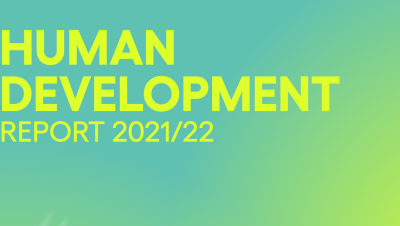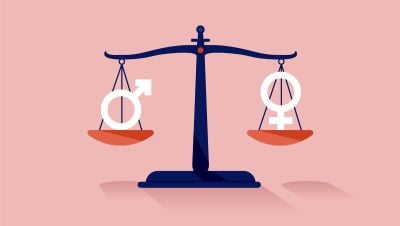Spent time lately working on your long-term financial plan? Thought strategically about your career, the skills you need to learn and the contacts you need to make? No? You are not alone. To procrastinate, even ignoring important life matters, is human nature. Ask me how hard it was to get down to writing this article – on procrastination!
Behavioural scientists study the common patterns in how people make decisions. They find that people very often choose short-term gratification, over long-term payoffs. For example, we may set ourselves fitness goals, but on the day, fail to go to the gym to exercise. We may set a diet, but then succumb to unhealthy eating. Going along with default options, making rules of thumb, following the herd, and many other behaviours are regularly documented by behavioural scientists.
Human development puts people at the centre of development. Human development means maximizing the choices that are available to people, so that they can actively choose from these, and live their lives to their maximum potential. Policies that seek to promote human development can benefit greatly from understanding human behaviour.
There are many examples where, incorporating insights from behavioural sciences has led to better implementation of programmes, helping resolve last mile challenges and reaching the most marginalized. A project in Kenya sought to encourage the chlorination of water to prevent deaths from diarrhoea. Public education campaigns to encourage people to add chlorine to their water had been tried, but had not yielded results. Removing behavioural barriers, that prevented people from taking the action, resulted in success. Chlorine dispensers were set up at the same location where people were already picking up their water. This simple intervention increased the presence of chlorine in people’s water by 53 percent, and is being scaled up in other areasi.
Behavioural research shows that people are motivated by what their peers are doing. In the UK, simply making a social comparison, telling people how their energy use compared with that of their neighbours led to a significant reduction in energy consumptionii. In China, to promote greater awareness in an e-waste recycling project, people were sent messages such as, “Join the 250,000 people who are helping to preserve our planet by e-cycling”iii. Many such efforts are ongoing, and already providing results.
Private companies too are employing behavioural insights to influence the actions of customers and employees alike. Sometimes these techniques can be questionable. For example, the ride sharing company Uber uses psychological tricks to get drivers to drive for longer hours. It exploits the tendency that people have to set earning goals – alerting them that they are ever so close to hitting a precious target, as they are about to log off. There is a feature in Netflix that automatically loads the next program, which many experts believe encourages binge watching. Uber has a similar feature, sending drivers their next fare opportunity before their current ride is overiv.
With different pursuits in mind, governments, private companies and charitable organizations, among others, try to influence the behaviour of people. There are ethical implications of how these different entities influence people in their decision makingv. Each society must determine the ethical constraints under which private companies and governments can act, in making these nudges to influence people. It is in this context that a human development lens can be extremely helpful.
Take an extreme example: A lie is a form of influence. But a lie is usually unacceptable, whether it comes from a private company, government or another organization. In other cases, the situation will be more nuanced, the boundaries more blurred. In many situations, for example national security or health crises, there will be difficult trade-offs to be made. For example, it is not hard to imagine a case where an exaggeration of a threat will ensure faster action by people.
Each society sets its own laws, norms and ethical constraints that deal with these questions. However, we must not lose sight of people – their wellbeing, agency and dignity. By keeping people at the centre, the human development approach provides the right framework under which to design and implement behavioural policies.
The HDialogue blog is a platform for debate and discussion. Posts reflect the views of respective authors in their individual capacities and not the views of UNDP/HDRO.
HDRO encourages reflections on the HDialogue contributions. The office posts comments that support a constructive dialogue on policy options for advancing human development and are formulated respectful of other, potentially differing views. The office reserves the right to contain contributions that appear divisive.
Photo: Clare McEvoy/Trocaire
i. Kremer, M., Leino, J., Miguel, E., & Zwane, A. (2011). Spring cleaning: Rural water impacts, valuation, and institutions. The Quarterly Journal of Economics, 126(1), 145–205.
ii. Dolan, P., & Metcalfe, R. (2013). Neighbors, knowledge, and nuggets: Two natural field experiments on the role of incentives on energy conservation. London: Centre for Economic Performance, London School of Economics and Political Science; Allcott, H. (2011). Social norms and energy conservation. Journal of Public Economics, 95(9), 1082-1095.
iii. Ferraro, P., & Price, M. (2013). Using nonpecuniary strategies to influence behavior: Evidence from a large-scale field experiment. The Review of Economics and Statistics, 95(1), 64-73; Muchnik, L., Aral, S., & Taylor, S. (2013). Social influence bias: A randomized experiment. Science, 341(6146), 647-651.
iv. The New York Times. How Uber Uses Psychological Tricks to Push Its Drivers’ Buttons. April 2, 2017
v. See Cass R. Sunstein. The Ethics of Influence in the Age of Behavioral Science. 2016. Cambridge University Press, Cambridge, U.K.


